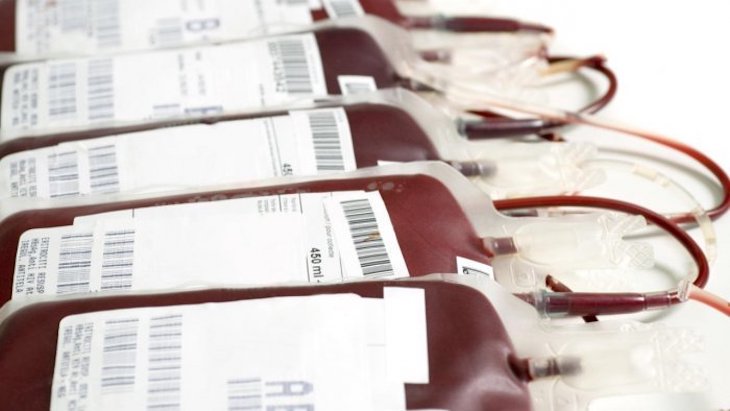
British scientists have done something incredible, and the future could be much better for it. They’ve actually grown human red blood cells in a lab for the first time, conducting a clinical trial to give to patients.
The blood sample, which is taken from a blood donor, is grown via stem cells that are encouraged to become new red blood cells. The process now provides the possibility to transfusion treatments for those with ultra-rare blood types, such as AB negative, which according to American Red Cross, ‘less than 1% of the U.S. population have AB negative blood.’
When it comes to almost the total majority of blood transfusions that occur in British hospitals, most of these health institutions rely on blood donated by people. And this will continue to be the case for most blood types that include A, B, O and AB blood types.
However, what happens when a patient comes in and requires a blood transfusion for what they consider the “Bombay” blood group? It becomes incredibly difficult since the British NIH only know of three people within the entire United Kingdom that have this majorly exceptional blood type.
Moreover, particular diseases like sickle-cell anemia need regular blood transfusions. So should a patient have the Bombay blood type, otherwise known as “Jka-b” or “Rh-null” also called “golden blood” or the “SARA” type since it was named after the women who was discovered with that type of blood, would be in major danger.
That’s because should they be given a blood transfusion of the wrong type of blood type would be seen by the immune system as foreign and would end up attacking it instead of accepting it.
For this new trial, the lab-grown blood with radioactive particles were given to at least ten health patients in tiny spoonful measurements. This way, the researchers were able to track how long the blood remained within the patients’ blood stream.
Usually, red blood cells last within the body for at least 120 days before the body replaces them with new ones. When it comes to donated red blood cells, they normally contain both older and younger cells. But because lab-grown transfusions would have only new blood cells, it could also mean that the need for blood transplants would be smaller and less frequent.
A report in BBC News explained that they spoke with Prof Ashley Toye from the University of Bristol to ask about process of growing blood in a lab. She said that the process takes around three weeks, and from nearly 500,000 million stem cells which result in 50 billion red blood cells, they eventually get filtered down to around 15 billion red blood cells in the proper developmental stage to transplant.
Prof Toye told BBC, “We want to make as much blood as possible in the future, so the vision in my head is a room full of machines producing it continually from a normal blood donation.”
Meanwhile, according to the medical director of transfusion at NHS Blood and Transplant, Dr. Farrukh Shah, explained, “This world-leading research lays the groundwork for the manufacture of red blood cells that can safely be used to transfuse people with disorders like sickle cell.”
“The potential for this work to benefit hard to transfuse patients is very significant,” Dr. Shah added.



